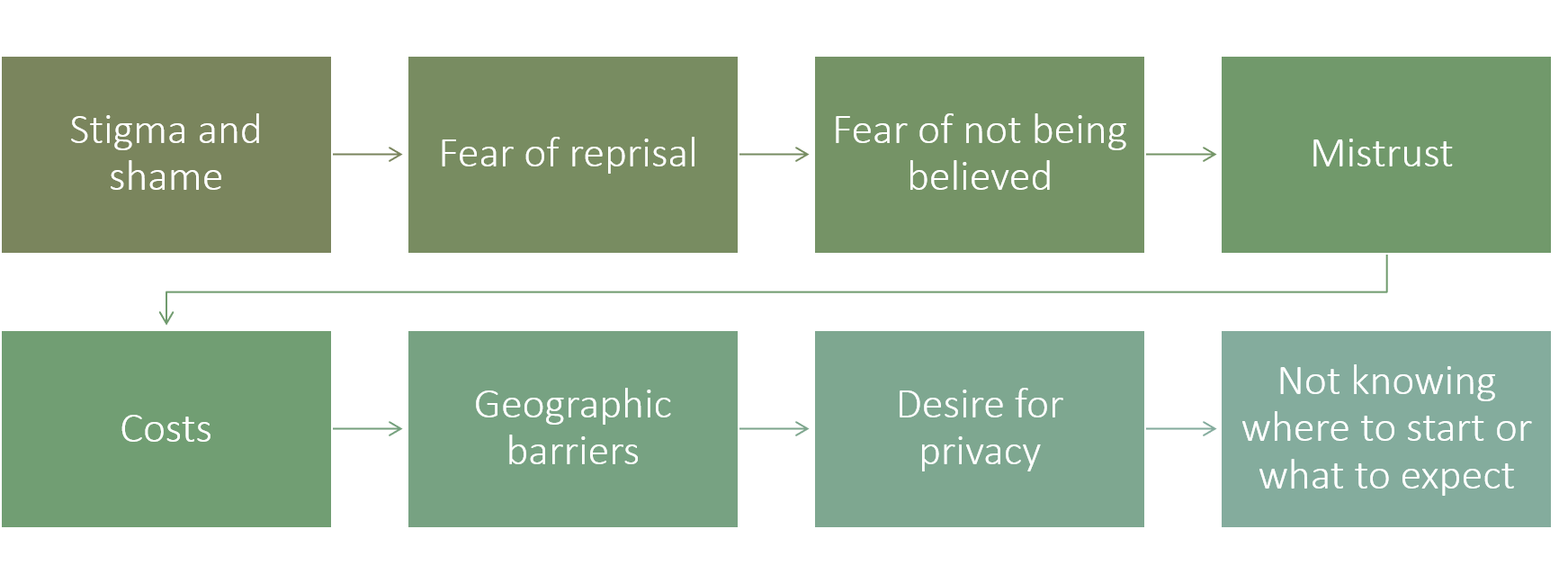How to support women who have experienced IPV

February 5, 2024
Dr. Colleen Varcoe, Professor Emeritus and co-lead of the iHEAL team, has been developing and testing an app for women experiencing Intimate Partner Violence (IPV) for more than ten years. Her co-leads on the Public Health Agency of Canada (PHAC)-funded project are Marilyn Ford-Gilboe of Western University and Kelly Scott Storey, of the University of New Brunswick.
A QUESTION ANSWERED
Colleen has been collecting data for over 20 years with the goal of answering the question, “How do nurses best support women who have experienced IPV?”
At one point, Colleen collaborated with US-based researchers who had developed a “decision aid” in part to help women determine if they should leave or not leave their current relationship. The technology was good, but the app was very limited in attention to health and Colleen’s team felt that Canadian women would benefit from more options for planning their next steps, as well as accessing local resources. The team was able, however, to build on that existing technology to develop an app that is fully Canadian, focusing on a broad range of issues facing women experiencing violence that affect their health and wellbeing.
The earliest version of their app was the CIHR-funded “ICAN Plan for Safety,” a program designed to assist women to promote their health and wellbeing when thinking about or leaving an abusive partner.
After the initial launch of the program, the team conducted a randomized clinical trial involving 462 Canadian women using the ICAN Plan for Safety program. The positive outcomes from that trial, coupled with technological advances over the past ten years, encouraged them to expand and further tailor the program.
The newly-released iHEAL app https://ihealapp.ca/ is the third iteration, drawing on the team’s wider program of intervention research with women experiencing IPV and their earlier work on online support, and leveraging advances in technology. iHEAL, or Intervention for Health Enhancement and Living, supports women in a whole spectrum of scenarios, from determining the legal ramifications of moving in with someone, to finding resources for living with HIV.
In its current form, it is an app for mobile phones or computers that is easily accessible. The app is organized into 6 “pillars” which are areas in which the team has found women experiencing IPV require support. It offerstailored and curated support, resources, exercises, planning and assessment tools that can help women work through a systematic program at their own pace and with their own goals in mind. The information offered is based on the user’s response to certain prompts they encounter on opening the app, beginning with the very simple, “Are you here for yourself or someone else?”
A DUAL AUDIENCE
IHEAL is designed for a dual audience. It was created as a support for women and others who are in abusive relationships or experiencing gender based violence (GBV), but it is also a helpful tool for their concerned friends and family or service providers.
Healthcare workers or even police officers responding to domestic violence calls can use iHEAL as a means of prompting discussion and building confidence. As they use iHEAL together, a service provider can help those experiencing IPV or GBV to take steps toward setting and achieving their personal goals, whether they’re curious about personal finances or they have relationship questions.
STRENGTHS AND LIMITATIONS
iHEAL is quite comprehensive, but it isn’t meant to replace human connection or other available resources. In fact, it consolidates over 400 currently-existing third-party services, programs and resources from each province and territory in Canada. Because it contains a variety of prompts, exercises and reflections, it can be an excellent planning tool to work through while a woman is waiting for face-to-face programs or services.
iHEAL addresses all the barriers to support that women may encounter (see below) and is the only app available that links to resources across Canada and tailors its responses to meet a woman where she is in her journey.
THE USER EXPERIENCE
Developed in collaboration with women with lived experience of IPV, there’s no judgment or agenda. The user is able to progress through steps methodically or to jump to whatever topic most interests them, such as how to obtain housing, or guides for child health and wellness.
When the app is opened, an interactive activity appears at the beginning of each session. Prompts encourage users to reflect on their health and current situation with questions such as, “How often does your health interfere with your work?” The researchers hope this kind of reflective activity will foster a deeper connection to each user’s personal experience.



